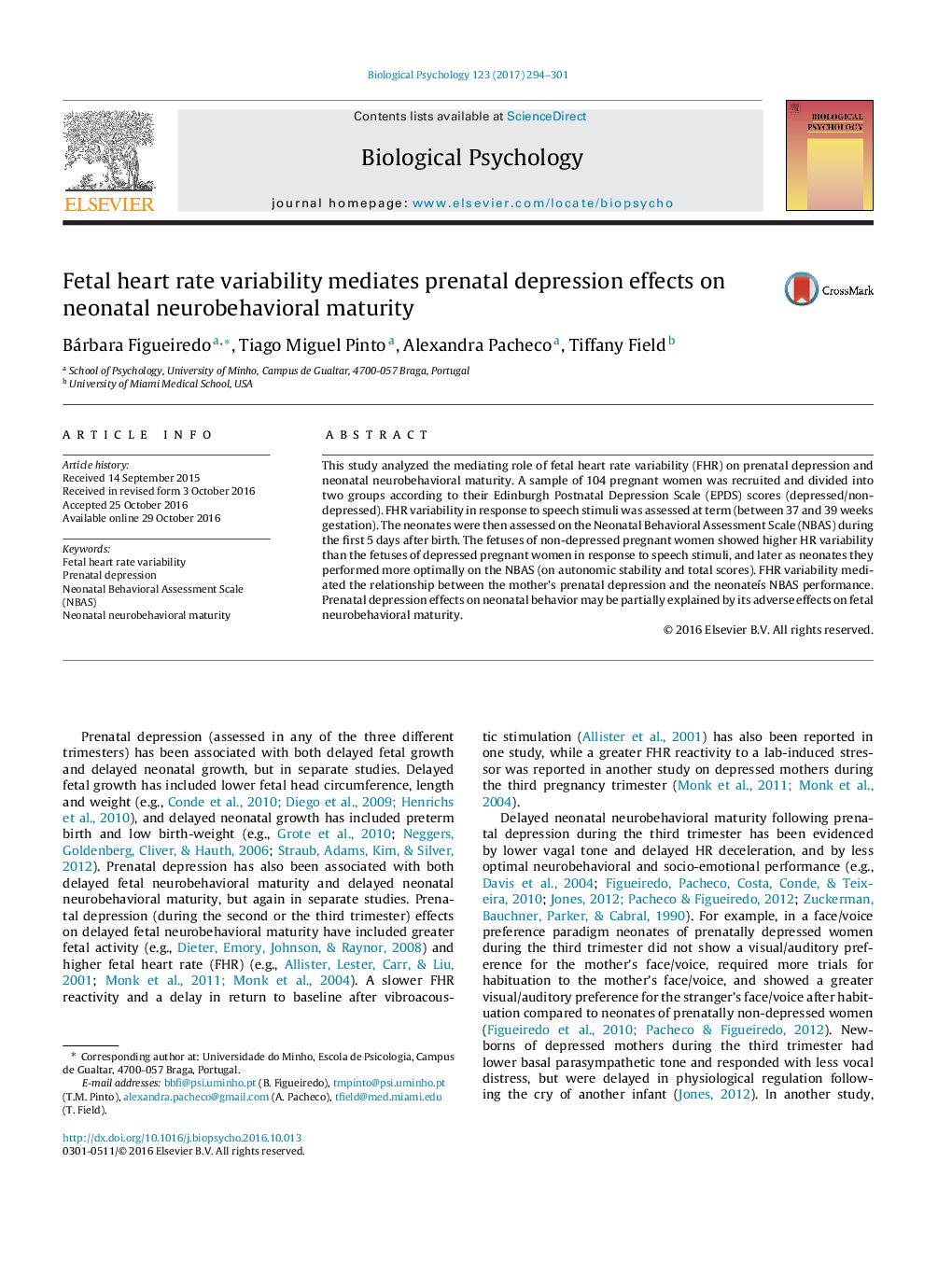| Article ID | Journal | Published Year | Pages | File Type |
|---|---|---|---|---|
| 5040550 | Biological Psychology | 2017 | 8 Pages |
â¢Fetuses of prenatally depressed women had lower FHR variability.â¢Neonates of prenatally depressed women performed less optimally on the NBAS.â¢FHR variability mediated relationship between prenatal depression and neonatal neurobehavioral development.â¢Prenatal depression effect on neonatal neurobehavioral development explained by effects on FHR variability.
This study analyzed the mediating role of fetal heart rate variability (FHR) on prenatal depression and neonatal neurobehavioral maturity. A sample of 104 pregnant women was recruited and divided into two groups according to their Edinburgh Postnatal Depression Scale (EPDS) scores (depressed/non-depressed). FHR variability in response to speech stimuli was assessed at term (between 37 and 39 weeks gestation). The neonates were then assessed on the Neonatal Behavioral Assessment Scale (NBAS) during the first 5Â days after birth. The fetuses of non-depressed pregnant women showed higher HR variability than the fetuses of depressed pregnant women in response to speech stimuli, and later as neonates they performed more optimally on the NBAS (on autonomic stability and total scores). FHR variability mediated the relationship between the mother's prenatal depression and the neonatés NBAS performance. Prenatal depression effects on neonatal behavior may be partially explained by its adverse effects on fetal neurobehavioral maturity.
